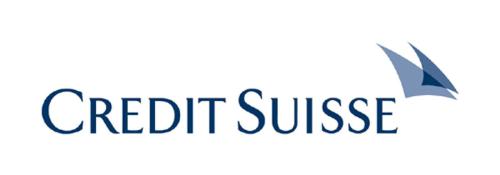Topic of the month July 2015: Investing in Future Leaders - Impact Investment can enable underprivileged talents

Investing in low-income talent to attend elite universities could provide low-risk returns to investors as well as a resounding social impact thanks to a much needed global widening of social capital
Mykola Streltsov was born in Stakhanov, a small town in Eastern Ukraine 30 years ago. This year, he plans to complete his INSEAD MBA, an elite qualification from one of the world's top and most exclusive business schools. "Typically people from my hometown don't even know about the existence of a MBA education and even those who know, rarely understand why people go for it" said Streltsov. Steltsov is one of a few students currently attending globally elite universities thanks to external funding, in his case from Prodigy Finance, a company which offers loans to international postgraduate students at leading business schools.
Investment Appeal
Support offered to students like Steltsov, to attend elite educational bastions, could also be extended to low-income talented students which could change both their lives and have a trickle-down effect to their country. A description that fits the remit of impact investors – who are seeking not only financial returns to their investments but also social impact.
Leading Paris-based graduate business school INSEAD is about to produce a report, commissioned by Credit Suisse, highlighting the appeal and growth prospects ofinvesting in underprivileged students to aim for the stars and fund their education at the world's top universities, providing them with an elite education and an unparalleled social network that can benefit themselves, their country, and possibly their continent.
"Attending a prestigious university provides a student with opportunities to establish peer networks with people who will in all likelihood become highly influential figures, including both government and corporate leaders of the future," said Sami Mahroum, Academic Director of Innovation and Policy at INSEAD and co-author of "Shooting for the Stars: How Impact Investment Can Help Low-Income Talent Develop Global Social Capital by Attending Prestigious Higher Education Institutions". Mahroum added that current "inaccessibility to elite global networks of influence contributes to the ongoing marginalization of countries that are already among the most socially, politically and economically excluded on the world scene".

Gaining a Voice
Low income countries, said Mahroum, make up more than 12 percent of the global population yet represent less than 2.5 percent of the elite and politically powerful WEF Global Agenda Council's membership – which aims to provide innovative thinking on critical global issues. How can this imbalance be addressed?
"If supporting low income country nationals to attend elite universities will broaden their social network so that they can help to join these discussions, it has to be done," said Mahroum adding that studying one year at Harvard, a considerable and often prohibitive investment for most families, costs what an average Sierra Leonean makes in over 100 years.
Innovative Financing
The INSEAD report calls for innovative financing methods to tackle this inequality. A key option is impact investing - which aims to provide tangible social benefits as well as financial returns for investors . "By focusing impact investments on elite tertiary education for low-income talent the result could have a rippling global impact," said Mahroum.
Impact investing currently accounts for a small share of overall global education funding – less than one percent - said INSEAD, adding that there was therefore considerable room for expansion and "untapped opportunity".
Assured, Competitive Returns
The report added that because employability and earnings of graduates of prestigious universities is usually high– financial returns from investing in such students "ought to be assured and competitive". Furthermore investing in such students can play a significant role in spurring their social mobility and thereby also address and tackle head on social inequality.
Tapping Into a Growing Market
Patrick Elmer, Credit Suisse Head of Philanthropy Services and Responsible Investment Switzerland, says the impact investing market is expected to growby about 20 to 30 percent p.a. over the next 3 to 5 years. Elmer added that the growing market of impact investing – in both size and popularity (currently estimated at 60 billion USD in assets) - is currently facing a bottleneck as it struggles to find enough scalable high-quality opportunities to invest in.
Elite tertiary education, says INSEAD, can provide an interesting new market which satisfies those seeking both social and financial returns.
New Products in the Pipeline
Credit Suisse, in collaboration with Prodigy Finance, last year issued the first-everHigher Education Note- worth USD 25m, a new impact investment product that provided talented students around the globe with access to higher education, and investors with both a financial and social return.
"Due to the success of this first note and growing investor interest, we are currently working on an even larger Note 2, to support a highly diversified pool of more than 1,000 talented students, most of whom come from developing countries with no access to traditional funding," said Patrick.
No Easy Evaluation
The INSEAD report recognizes that there is no "one-size-fits all" when it comes to evaluating impact investments in tertiary education. The evaluation will have to be multifaceted: assessing gains following graduation, during employment, changes in standards of living, scope of influence and an increase in civic participation. Furthermore this has to be measured over the short, mid and long term. But even if this will be hard to mathematically quantify, tapping into the elite global power network could mean that lower income countries will find a spot to sit on boards and in circles where decisions about distributing and making value are being made. This could be groundbreaking.
As Economics Nobel Laureate Paul Krugman said, and was used to start the INSEAD report: "Soaring inequality isn't about education, it's about power".

Philanthropy Services & Responsible Investment at Credit Suisse
Client demand for investments that incorporate economic, environmental and social aspects is growing steadily. At Credit Suisse, we offer a broad range of products and services that provide investors access to exclusive opportunities to create impact. Our Philanthropy Services and Responsible Investment specialists provide advice, products and tailored solutions to clients who want to integrate personal values as well as social and environmental objectives into their wealth management. This may include, for example, setting up philanthropic structures, investing in products in the areas of impact investment and microfinance, or integrating sustainability criteria into their investment portfolios. At the end of 2014, Credit Suisse’s Assets under Management with high social and environmental benefits totaled nearly CHF 9 billion.
Credit Suisse has been a leading innovator in the impact investing space for more than a decade. As co-founder of responsAbilty Social Investments AG, the bank has been active in development-related investments in emerging economies since 2002. Today, we manage over USD 2.8 billion in assets across innovative financial vehicles and a variety of sectors including microfinance and nature conservation.
To cater to the different needs and objectives of our investors, we have built a platform of thematic investment opportunities with different risk, return and impact profiles. This is done in collaboration with partners ranging from NGOs to social enterprise and asset managers. Past examples include a partnership with FINCA to provide local currency financing for low-income individuals, with Prodigy Finance to fund higher education for underprivileged, talented students worldwide, and with Althelia to finance cooperatives and support nature conservation.
Complementing our client-focused effort, our Microfinance Capacity Building Initiative fosters market development and innovation by strengthening microfinance institutions' ability to serve the increasingly diverse financial needs at the base of the income pyramid. The initiative provides financial and human resources to train and develop management and to drive product and process innovation – enabling organizations to meet their social and financial goals in an efficient and responsible manner. Learn more about our engagement and opportunities for you to get involved in Philanthropy Services and Responsible Investment (Link)
It is well known that education is one of the most powerful tools available to help alleviate poverty, spur economic growth and promote social change. While primary education is an area that has been targeted by philanthropic initiatives as well as some impact investment funds, little attention has been given to higher education.
Against this backdrop, the report sheds light on current challenges both policymakers and low-income students face with regard to higher education. It investigates innovative impact investment models that financial institutions, such as Credit Suisse, could utilize to engineer solutions that benefit talented students from low-income countries looking to access higher education.
The report will be published in in the fall of 2015. Contact us to learn more and request a copy (psri.global@credit-suisse.com)
Author: |


